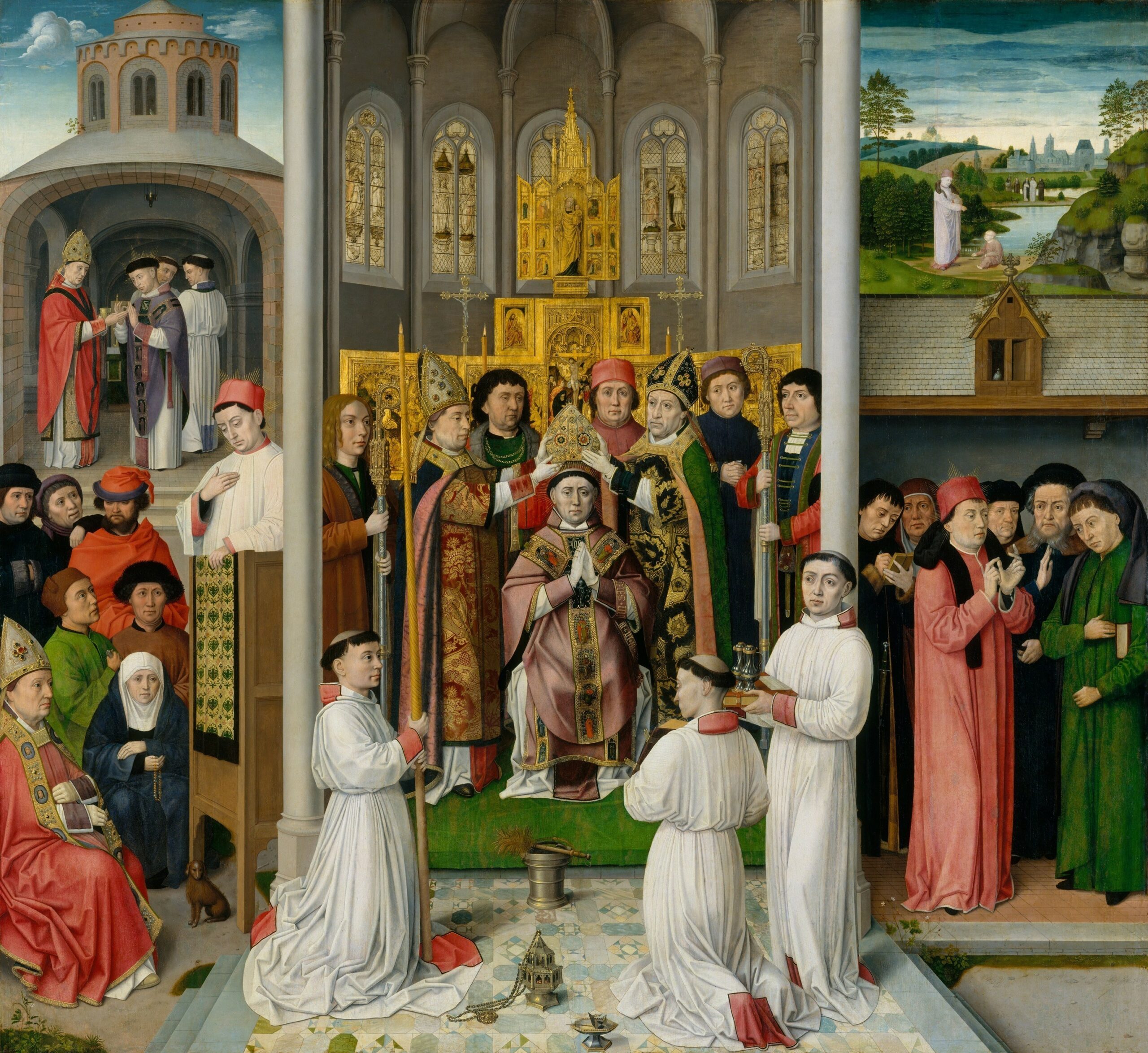An Author Read by Popes, Rock Stars, and Atheists
One Christian author in history owns the distinction of having been read by popes, rock stars, and leading atheists. He lived almost 1,600 years ago and was from North Africa. He is the single most prolific author of the ancient world and has influenced countless Protestants and Catholics. Named after two Roman emperors, he is known to us as St. Augustine of Hippo (354–430).
After a youth filled with restlessness and rebellion and an early career characterized by the pursuit of pleasure and ambition, Augustine experienced a dramatic conversion to Christianity when he turned from his pagan and skeptical-based beliefs. His classic book Confessions details his dramatic conversion story and, to this day, remains a perennial bestseller that is read in great books programs as well as by famous individuals from diverse worldview perspectives.
Over his prestigious career Augustine wrote more than five million words. He was a robust theologian, an insightful philosopher, and a tenacious defender of the truth of historic Christianity. Widely considered the greatest of the church fathers, Augustine’s writings shaped aspects of Christian orthodoxy like creation, the Trinity, original sin, and salvation by grace. He is a universal Christian voice within Western Christendom and remains influential among scholars and laypeople alike.
Let me identify some of the diverse and well–known people who have read and been influenced by Augustine.
Favored Church Father of Catholic and Protestant Thinkers
In his medieval theological masterpiece known as Summa Theologiae, the great Catholic philosopher Thomas Aquinas (1225–1274) calls Augustine “The Theologian” and quotes his writings extensively. Thus, arguably the greatest Catholic thinker in history, Aquinas, was an appreciative student of Augustine.
In his blockbuster theological work Institutes of the Christian Religion, Protestant reformer John Calvin (1509–1564) also quotes Augustine extensively and makes a case for Protestants being in the Augustinian theological stream. So arguably Protestantism’s leading systematic theologian, Calvin, was an ardent pupil of Augustine.
The Augustinian Pope
Writing in personal, subjective terms about his life and thought attracts people to Augustine and causes them to reflect upon their own lives. The appeal of Augustine’s biography Confessions has extended all the way up to the head of the Catholic church. Pope Benedict XVI (now pope emeritus, born Joseph Ratzinger), is one of the most scholarly popes in recent centuries. Benedict is himself an Augustine scholar and has said that he is more attracted to the theological system of Augustinianism than Thomism.1 The pope even noted earlier in his career that he developed his basic theology in a dialogue of sorts with Augustine.2 Ratzinger’s doctoral dissertation was on “The People and the House of God in Augustine’s Doctrine of the Church.”
Patron Saint of Wayward Rock Stars
It has been said that Augustine was a great sinner that became a great saint. His early reputation for worldliness appears to attract the attention of some of rock-n-roll’s leading stars and bad boys. He enjoys the pop culture distinction of being the only Christian thinker to be mentioned in songs by Bob Dylan (“I Dreamed I Saw St. Augustine”), the Rolling Stones (“Saint of Me”), and Sting (“Saint Augustine in Hell”). Augustine’s candid honesty about sin and his declaration of the absolute need for grace touches people from all walks of life.
Augustinian Atheists
Augustine’s insights have not been lost on Western Civilization’s prominent thinkers, regardless of religious affiliation. Christian philosopher James K. A. Smith, author of the new book On the Road with Saint Augustine: A Real-World Spirituality for Restless Hearts (2019) has suggested that Augustine may have been the world’s first existentialist philosopher.3 Not only were existential forerunners and Christian thinkers Blaise Pascal (Catholic) and Søren Kierkegaard (Protestant) serious students of Augustine, but leading atheist thinkers such as Albert Camus, Jean-Paul Sartre, Martin Heidegger, and Jacques Derrida paid careful attention to Augustine’s writings as well.4 Augustinian themes of each person having inner longings and experiencing angst and estrangement in life while nonetheless seeking personal meaning, no doubt attracted these secular existentialist philosophers.
What is it that so many different kinds of people find in St. Augustine? I think the answer is that we see ourselves in him and in his descriptions of his life. Some scholars suggest that the Confessions is really about the human pursuit of God. Smith states: “When you really spend time with Augustine he is remarkably vulnerable, humble, and very much imagines himself as a co-pilgrim with people, rather than sitting up on this dais, sort of announcing and denouncing.”5
Augustine’s broad appeal therefore includes theologians, artists, philosophers, and everyday people attempting to make sense of life and the world. If you haven’t, I invite you to take up and read Augustine. Start with the Confessions. You’ll be reading a classic of both Christianity and Western Civilization.
Reflections: Your Turn
Have you read any of Augustine’s works? Visit Reflections on WordPress to comment with your response.
Resources
- For an introduction to Augustine’s life and key ideas, see chapter three of my book Classic Christian Thinkers: An Introduction.
- Although there are many translations of Confessions available, I recommend these: Confessions, trans. R. S. Pine-Coffin (New York: Penguin, 1961); The Confessions: Saint Augustine of Hippo, ed. David Vincent Meconi, trans. Maria Boulding (San Francisco: Ignatius, 2012); Confessions, 2nd ed., trans. F. J. Sheed (Indianapolis: Hackett, 2006).
Endnotes
- Timothy George, “Benedict XVI, the Great Augustinian,” First Things, February 19, 2013, https://www.firstthings.com/web-exclusives/2013/02/benedict-xvi-the-great-augustinian.
- Jerry Filtreau, “Theologians Reflect on Pope Benedict XVI’s Theology,” Catholic Education Resource Center, reprinted with permission from Catholic News Service (May 2005), https://www.catholiceducation.org/en/culture/catholic-contributions/theologians-reflect-on-pope-benedict-xvi-s-theology.html.
- Church Times, “The 20th Century Was Augustinian,” October 11, 2019, https://www.churchtimes.co.uk/articles/2019/11-october/features/features/the-20th-century-was-augustinian
- Albert Camus, “Between Plotinus and Saint Augustine,” translated and postscript by David Rathbone, Academia.edu. https://www.academia.edu/11350881/Albert_Camus_Between_Plotinus_and_Saint_Augustine_; https://www.churchtimes.co.uk/articles/2019/11-october/features/features/the-20th-century-was-augustinian.
- Church Times, “The 20th Century.”






